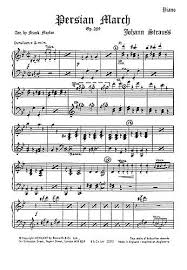Understanding the Historical Significance of Persia

Introduction to Persia
Pursuing the legacy of ancient Persia is crucial for understanding contemporary Middle Eastern cultures and global history. Once one of the largest empires in the world, Persia, known today as Iran, has played a vital role in shaping political, economic, and cultural landscapes across thousands of years. The enduring influence of Persian contributions, from art to science, remains relevant in today’s interconnected society.
The Rise and Fall of the Persian Empire
The Persian Empire, founded in the 6th century BCE under Cyrus the Great, expanded across three continents, becoming a beacon of administrative efficiency and cultural diversity. At its height, it included vast territories stretching from the Indus Valley to Egypt, promoting trade along the Silk Road and fostering a rich interchange of cultural and intellectual ideas.
However, the empire’s vastness led to its eventual decline, which began with internal strife and was accelerated by invasions from the Greeks under Alexander the Great in the 4th century BCE. Despite this, the cultural legacy of Persia endured, influencing subsequent empires and cultures that emerged in its wake.
Persian Cultural Influence
The artistic heritage of Persia is profound, especially in architecture, poetry, and philosophy. The Persian language, Farsi, has been a vehicle for some of the world’s most celebrated literary works, such as the Shahnameh by Ferdowsi and the poetry of Rumi. Moreover, Persian architecture, exemplified by stunning mosques adorned with intricate tile work, continues to influence artists and architects globally.
Modern Relevance of Persian Heritage
Today, the significance of Persia is evident not only in Iranian society but also in global culture. Scientific contributions made during the Islamic Golden Age, particularly in fields such as mathematics and astronomy, have laid the groundwork for modern scientific principles. Recent archaeological discoveries continue to shed light on unexplored aspects of Persian civilization, revealing complex societal structures and traditions.
Conclusion: The Enduring Legacy of Persia
Persia’s historical significance is multifaceted, offering invaluable insights into the evolution of societies, cultural practices, and geopolitical dynamics. Understanding Persia fosters a greater appreciation of the interconnectedness of past and present, highlighting the importance of preserving cultural heritage amidst rapid globalisation. As we look to the future, revisiting Persia’s accomplishments and challenges can provide lessons on resilience, unity, and cultural pride that are relevant in contemporary discussions around identity and human interaction.









